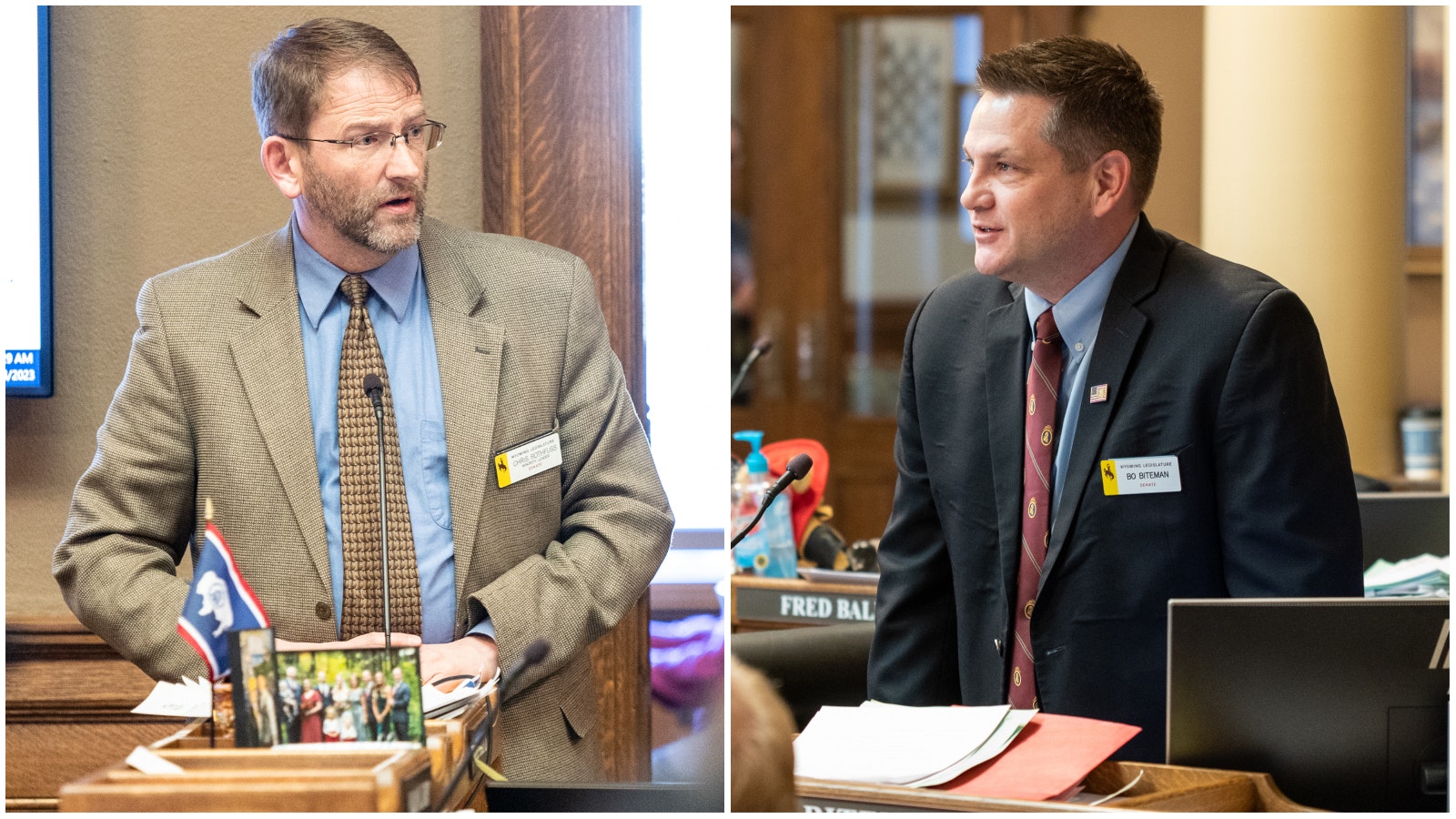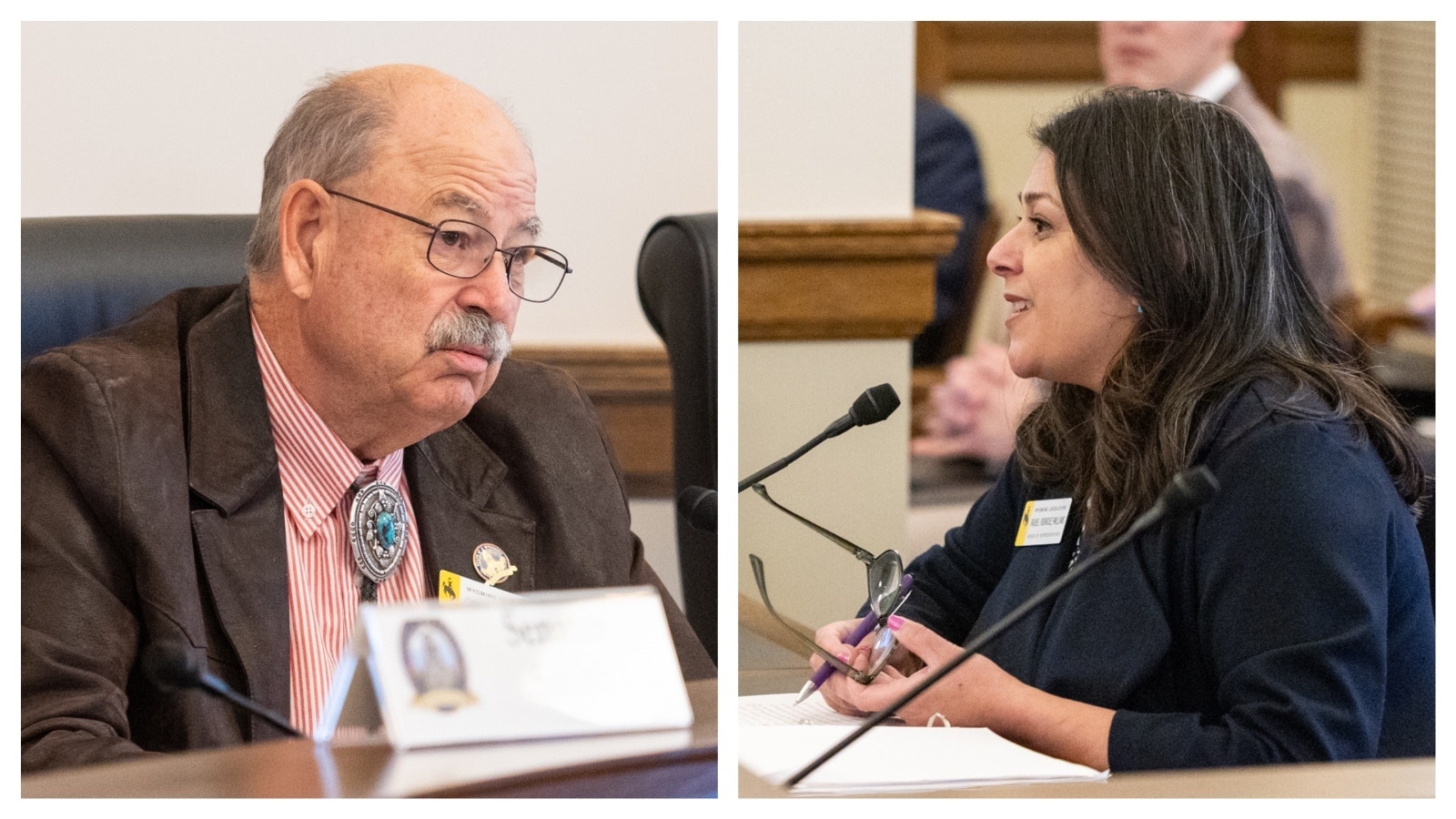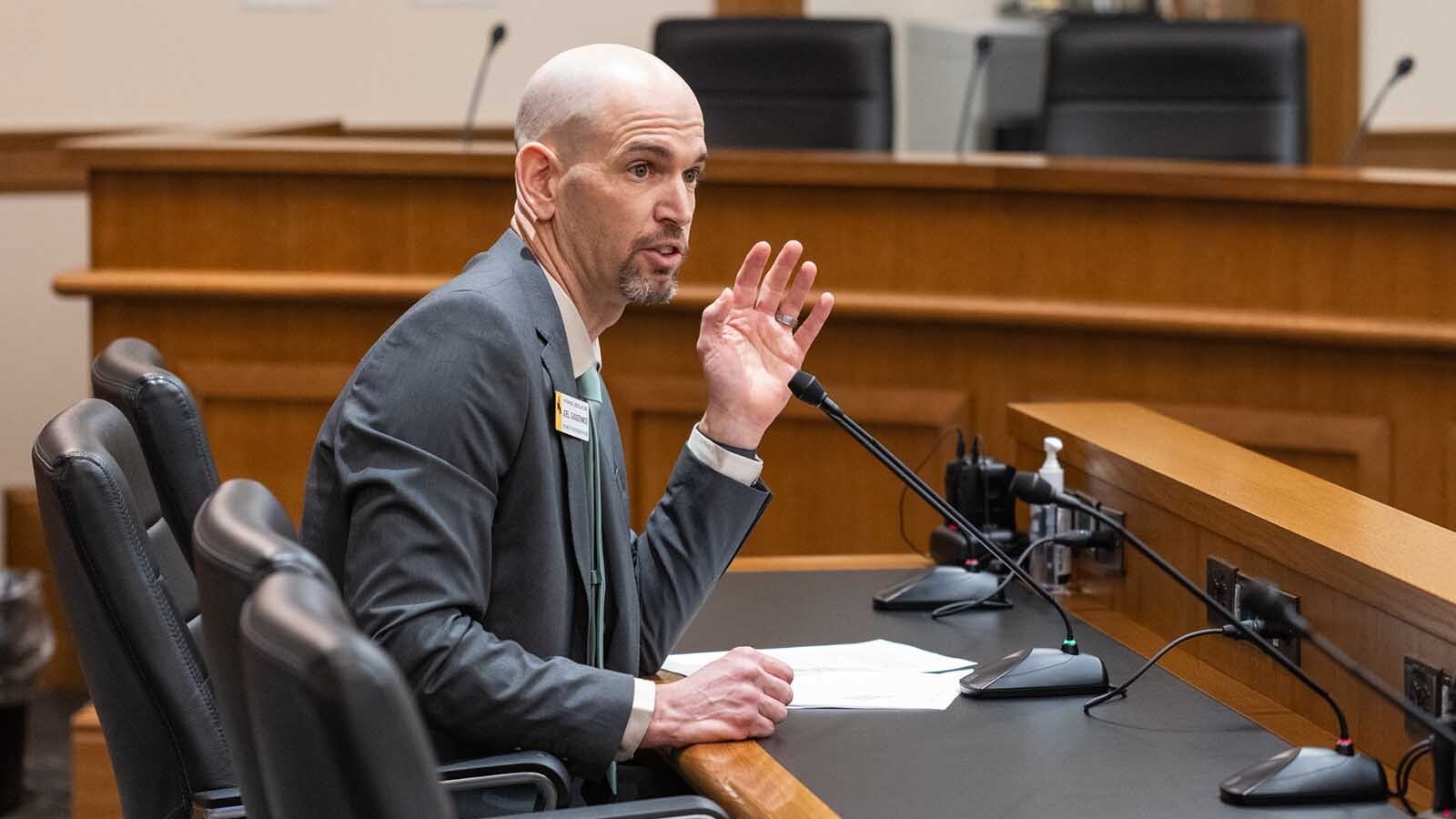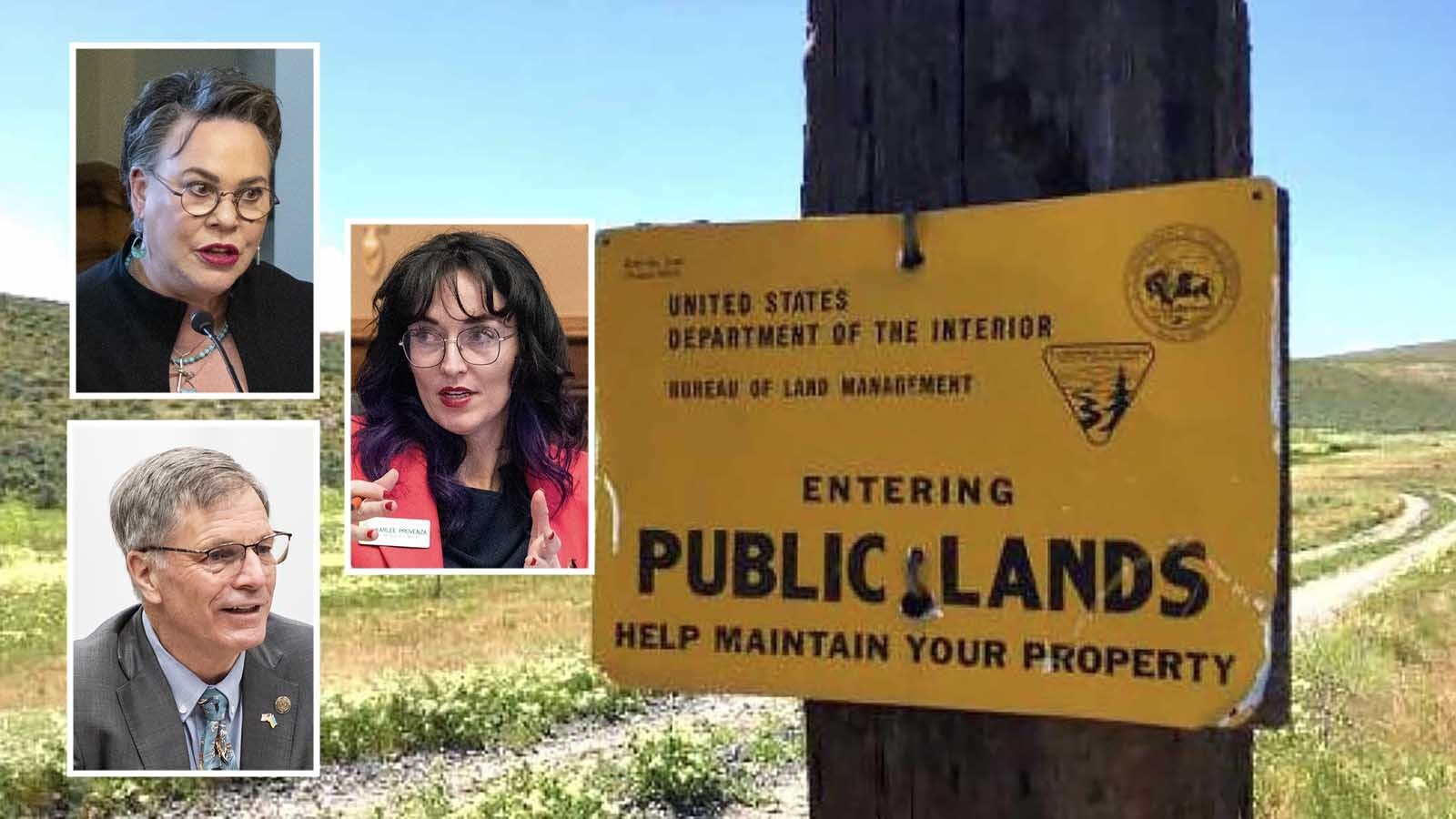After years of legislative attempts, Republican Party rousing and campaign promises left unfulfilled, crossover voting on primary election day is close to being over.
All that remains for House Bill 103 to be signed into law is concurrence in the Wyoming House of Representatives and Gov. Mark Gordon’s signature. Since there are no outstanding changes on the bill from version the House has already approved, Gordon’s signature will be the last major obstacle.
Michael Pearlman, spokesperson for Gordon, told Cowboy State Daily shortly after HB 103 passed through the Senate that the governor has not decided whether he will support ending crossover voting, but will consider the bill “carefully once it reaches his desk,” as he does with all bills.
More Debate
More than an hour of passionate debate was spent on the bill Friday, much of it a repeat of many points made earlier in the week. There was no evidence any legislator had their minds changed during the discussion.
Sen. Cale Case, R-Lander, was one of the most fervent opponents to House Bill 103.
In two speeches he made about the change to Wyoming’s way of handling elections, Case offered scathing remarks to state GOP leadership, which has pushed to end crossover voting.
Crossover voting is the process of people changing their party affiliation to participate in that party’s primary and affect the outcome of an election.
“Leadership of the majority party often is disappointed when someone that is not as adhering to the litmus test squeezes through the primary,” Case said. “Low and behold, someone might come out that’s a little bit more moderate.”
Case was likely referring at least partially to himself, as he was censured by the Wyoming Republican Party twice in 2022 and narrowly beat his opponent in the primary that year. He told Cowboy State Daily that although he believed it was a sad day for democracy, he is unconcerned about the legislation affecting his chances of getting reelected and will be elected again in 2026.
“I represent a district that is heavily split,” he said. “I won the election and I’m going to win the next one too.”
Case brought up surveys that have shown a significant number of Americans believe the country is headed toward a civil war and the Jan. 6, 2021, Capitol insurrection as an example.
“I do think it’s about control by a very small group of people,” he said.
Other detractors of the bill have argued that crossover voters will just permanently register as Republicans and continue to influence that party’s elections.

Can’t Kill It
Addressing crossover voting has been a major issue for the Wyoming Republican Party and Secretary of State Chuck Gray, who vowed to address the issue if elected to office in 2022.
Gray testified numerous times on crossover voting bills.
“As written, HB 103 will stop the recurrent problem of crossover voting, a process which has undermined the sanctity of Wyoming’s primary process,” he said in a press release after the vote. “I support this bill 100%, and the Wyoming Legislature made the right decision by passing HB 103.”
Sen. Bo Biteman, R-Ranchester, was one of the firmest supporters of the bill in the Senate.
“It’s been probably the most vetted bill this body has ever seen,” he said. “It’s been shot at, it’s been nuclear bombed, it’s been fumigated, it’s been thrown in the garbage can.
“It’s been beaten, dragged – you name it. It’s been through the wringer,” Biteman said. “Everyone who has tried to shoot holes in this bill has had ample opportunity to shoot holes in this bill.”
The Senate passed HB 103 on Friday 19-11.
Sen. Tim Salazar, R-Riverton, said he was pleased to see crossover voting addressed through legislation, but doesn’t believe its journey is over.
“I’m glad that it passed. My constituents wanted it to pass,” he said. “We’ll see whether it gets through the governor’s signature or not.”
Amendments
Although there were 12 amendments made to HB 103 throughout the course of the legislative process, none of them made it into the final version of the bill Friday.
Sen. Chris Rothfuss, D-Laramie, for the second time brought an amendment that would allow the Democratic Party to abstain from the blackout period when party registration is locked in.
“There are concepts and ideals of one political party that is not particularly consistent with ideals of other political parties in the state,” he said. “This is an option to opt out.”
His amendment was defeated 19-10.
Sen. Charles Scott, R-Casper, brought an amendment that would have added language guaranteeing that unregistered voters, such as people who turn 18 after the candidate filing period opens, could still register to vote.
“This amendment does no harm for the purposes of the bill, as much as I would like to do harm to the purposes of the bill,” Scott said, bringing laughter from a few and a scowl from Biteman.
Although Biteman has vowed that his legislation would only affect already registered voters, he still voted against the amendment, which was defeated 16-15.
Case brought the final unsuccessful amendment Friday, changing the registration lockout period to 45 days before the primary election in alignment with the beginning of the state’s current early voting period.
What Does It do?
HB 103 would prevent voters from changing political affiliation after the filing period for declaring political candidacy opens. The idea behind this timing is to prevent voters from changing party affiliation purely based on which candidates are running.
Bills have been brought attempting to address crossover voting for some time, but the movement gained increased momentum after the 2018 Republican primary.
That year, many hardline conservatives complained that Gordon was assisted by many crossover voters in his primary election win.
Although it was proven that crossover voting did not affect the final outcome of that race, there was a sizable crossover presence in the 2022 U.S. House race between former congresswoman Liz Cheney and U.S. Rep. Harriet Hageman. Hageman still won by an overwhelming 38% of the vote.





